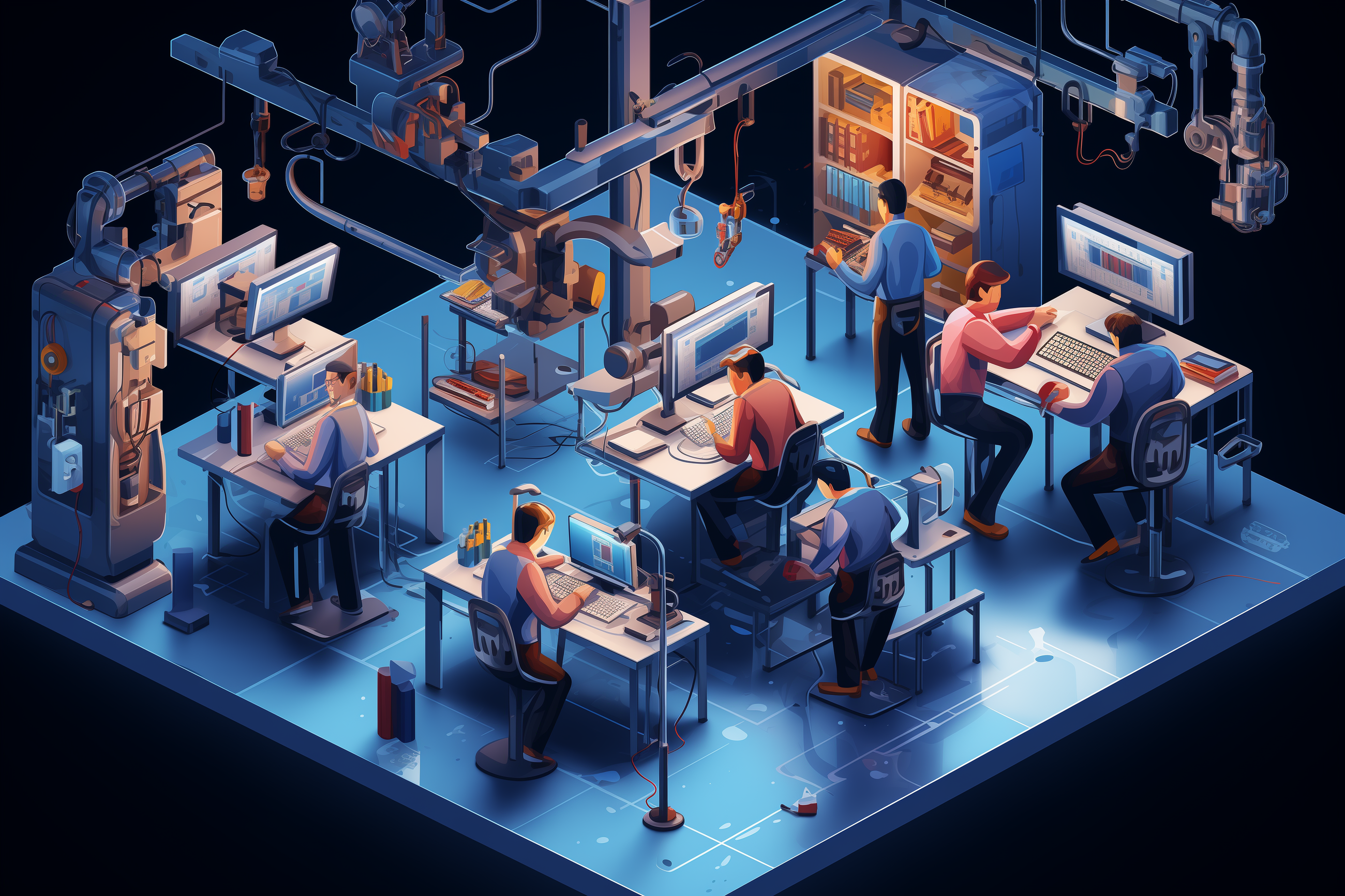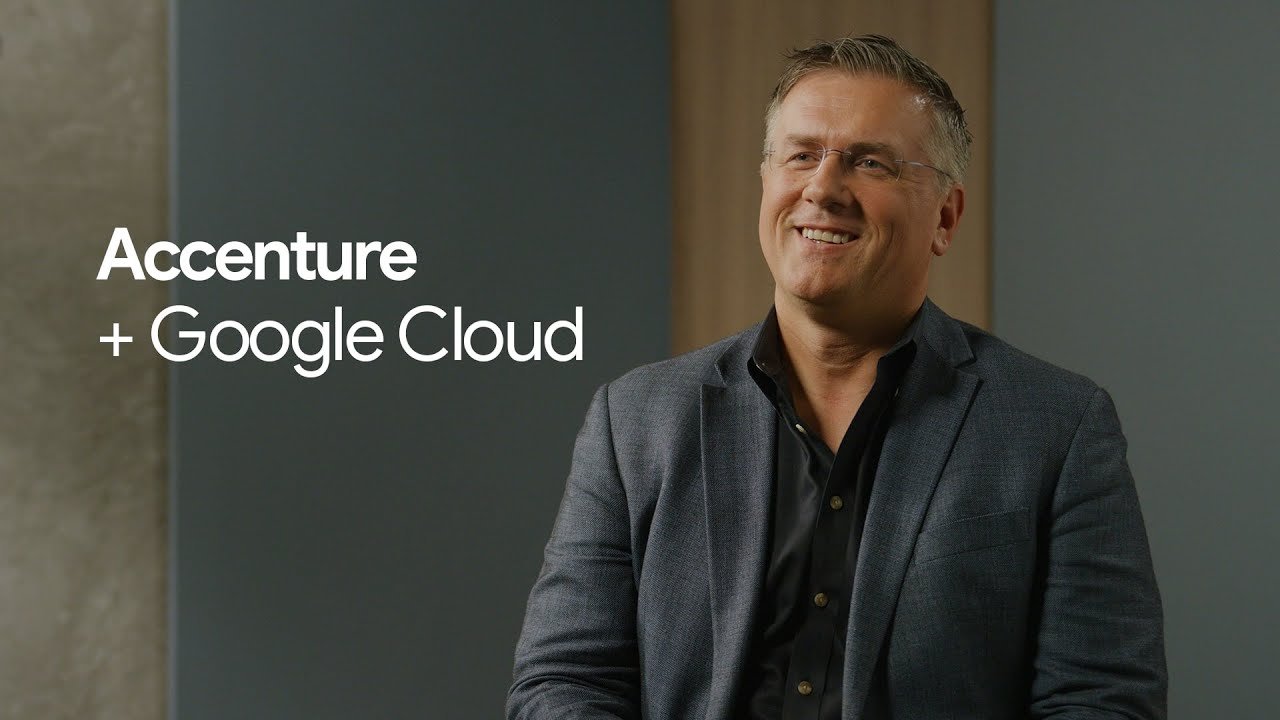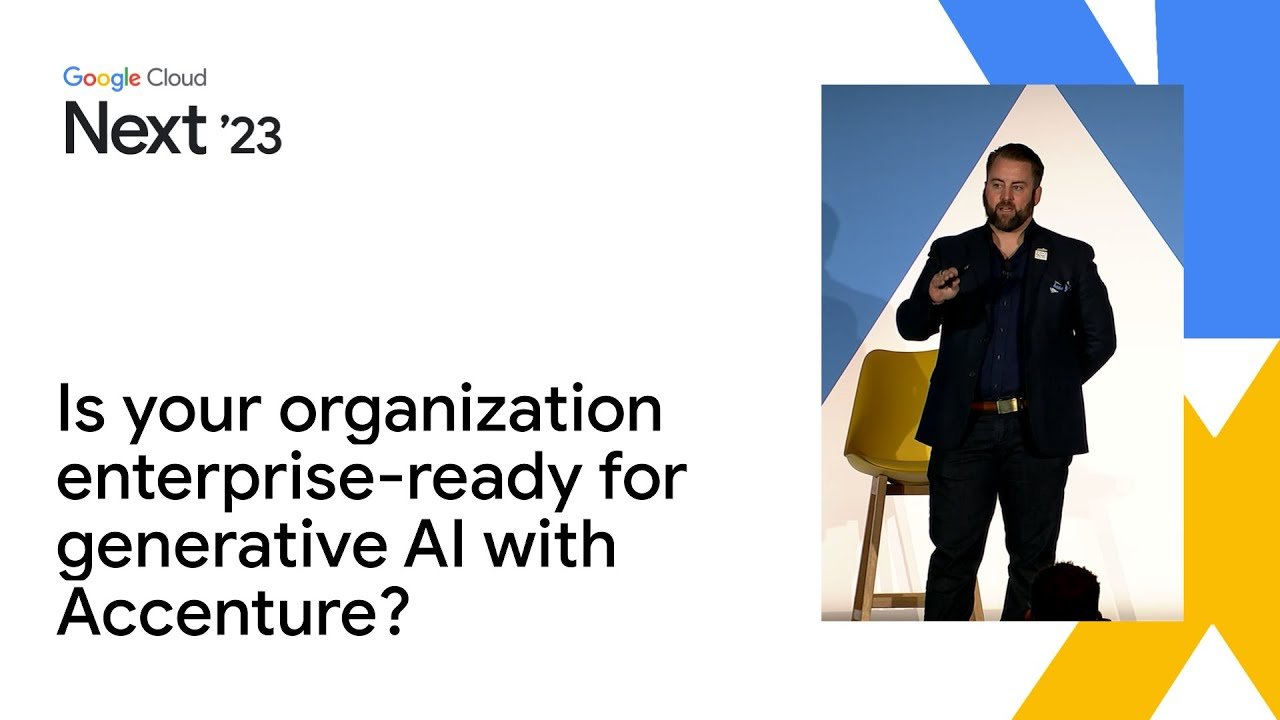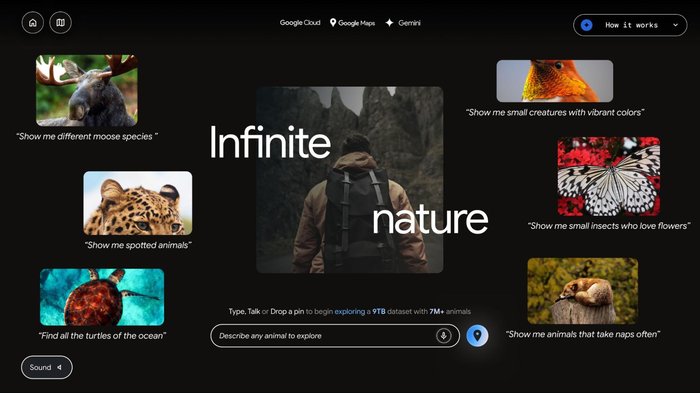Accenture’s Enterprise CTO: “Gen AI really changes how we interact with all kinds of work.”

Sabrina Cherny
Contributing Producer, Google Cloud
Whether it's the next industrial revolution, AI certainly presents lots of revolutionary options for the well-prepared enterprise.
A hundred years ago, the hottest jobs on the market were in the burgeoning industries of manufacturing and electricity. Farming was still the most prominent field in the United States, while salespeople have always been in high demand.
But if you asked any employer or laborer in 1923 about being a knowledge worker, you would’ve received blank looks and confusion.
Today, knowledge work — a job that primarily involves the “cognitive processing of information” — is among the most common of occupations (salespeople are still in high demand). Much has changed in the last hundred years. And, with the oncoming rush of generative AI, much is about to change yet again.
“The world is going to be different,” Merim Becirovic, managing director of global IT, enterprise architecture at Accenture, said in a recent interview with Google Cloud. “I think about the Industrial Revolution and what that did. If you could time travel a hundred years back, think about trying to tell somebody, ‘Hey, there's this thing that’s gonna be called a knowledge worker and they're going to sit in an office and they're gonna do work.’ People would look at you like you're crazy. I think that inflection point is where we're at today with generative AI. People don't understand it yet, but it's going to change so much of what we've done because a lot of the knowledge work we have done to date has been built because the machines couldn't do it.”
Just as computers changed the nature of work, people like Becirovic think that generative AI is going to force an evolution of how we work. From data entry, to how programming is done, to the creation of content, to customer service and beyond, our new model of interaction with computers will alter how we approach our jobs.
“Generative AI really changes how human beings are going to interact with all of this kind of work in the future,” Becirovic said. “It's going to amplify the concept of a knowledge worker and it's going to be very different. The AI is still only going to give you an answer to a question you ask, but the human being will be able to structure their queries and capabilities much differently to actually change and enhance their outcomes, get the information faster, find different things. I think that is super exciting. I really believe it's going to be the next Industrial Revolution.”
We recently sat down with Becirovic to discuss the impacts and possibilities of generative AI, and the benefits of cloud computing. See the curated conversation below.

Challenges and examples of generative AI for enterprise IT
Tell us a little about the biggest challenges that you're helping your customers solve with generative AI.
Merim Becirovic: Because of the size of Accenture and who we are, generative AI is clearly going to be a massive market shift that everyone is going to react to. We, as the enterprise IT organization, are at the forefront of enabling those services and thinking about how we're going to make the lives of all of the employees that work for us more effective as a result of having these capabilities.
That means taking the data that we have and consolidating it into new models so that our people can get the information faster, and help assist them to do their client work that much more effectively. We are, in multiple aspects, piloting different things across the globe. How do we work with developers? How do they actually access code? How do they write code using AI? How do we make some of our knowledge base available to our people? How do people actually search Accenture resources? So many of those things are very much in flight right now, and that's what we're working through in these early phases.
What’s a real-world example of how generative AI will help an employee at Accenture in their daily life?
Becirovic: I've heard people say this is going to replace a developer, and that anybody can be a developer. I don't see that yet. What I see is that an experienced developer is going to become an optimized developer because these tools and capabilities give them access to things much faster than they've ever had before. How do I connect to this service? How do I invoke this API? They might have to research that. Or, in the AI, they just type in what they're trying to do and they get that code. Now an experienced developer, a professional developer, has much more capacity and speed to get things done so they can be a lot faster and far more productive.
So, the human is not going to be replaced by AI?
Becirovic: The human is not being replaced by AI. The human is going to be very much augmented by AI.
How is Accenture helping other companies get started with incorporating gen AI?
Becirovic: The thing I take a lot of pride in being part of our enterprise IT organization is that we think of ourselves as customer zero. For all of our clients out there, we're trying to do this to ourselves first. We want to try, we want to fail, we want to reimagine, we want to think about those services. We can then have an opinion that we can take to our other clients from a go-to-market perspective and share our stories and experiences.
The importance of the cloud to generative AI
What do you think are some of the prerequisites to generative AI for people thinking about their cloud journey?
Becirovic: The prerequisite for this journey to generative AI, in my opinion, is for a lot of enterprises to finish their cloud journeys. Many enterprises are still halfway into figuring out how to actually use cloud, and they're still doing some hybrid cloud. We are completely in the cloud right now. Accenture is powered by the cloud. I think it's very important to finish that journey. The reason I say that is because it then opens up doors to everything, all these capabilities that are coming out. All these gen AI capabilities are, of course, in the cloud. They're not sitting in a data center. And all these services are being built in the cloud with cloud consumption in mind. So having an organization that's already powered by the cloud is going to be a tremendous advantage.

What if they don't jump on the cloud right now? What's the other side of that?
Becirovic: If companies are slow to adopt cloud now that these capabilities are available, the companies that took advantage of cloud are going to be much more able to do things faster and gain competitive advantage. They can scale, they can PoC, they can build, they can prototype. Companies that have not been in the cloud, they don't have this experience yet. So they have the extra hurdle of how do I set up my cloud environments? And then how do I take advantage of generative AI? How do I connect these networks? So there's a lot of work that stops companies from moving quickly. Being cloud-powered is the accelerator pedal in using AI and gen AI capabilities. Since we have completed our cloud journey, this world is much easier for us to consume.
As for gen AI, this is the beginning. It’s moving fast. We're at a stage where these capabilities, the use cases, are evolving rapidly and finding their way into how we run the company more effectively. I think the use cases are still being thought about from a human interaction perspective. But these new models that are going to come out, I think they're going to give us a different lens. We don't know what the end state is going to look like, but we do know it's going to be something much different than what it is today. Super exciting times ahead.
Opening image created using MidJourney, running on Google Cloud, with the prompt: a flat magazine-style illustration of a tableaux showing workers working more efficiently in a range of job roles thanks to AI.




